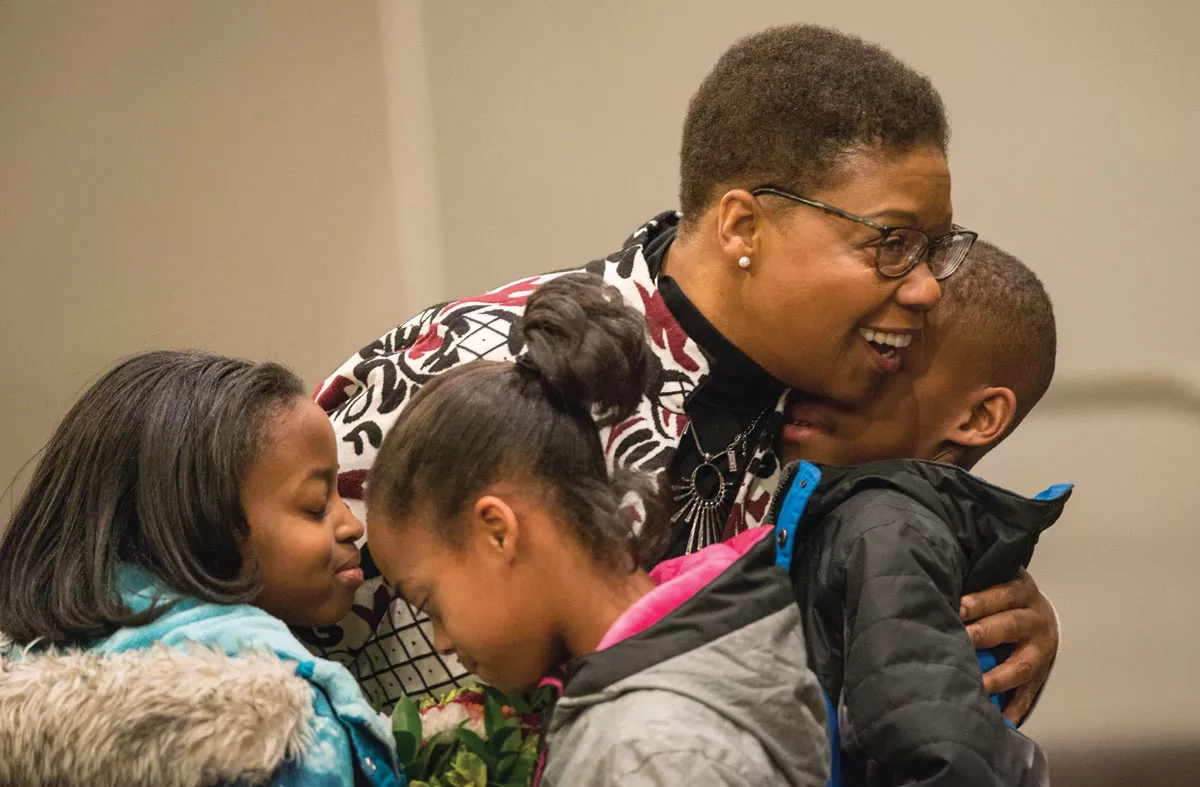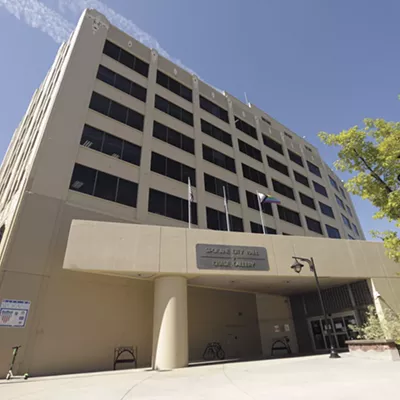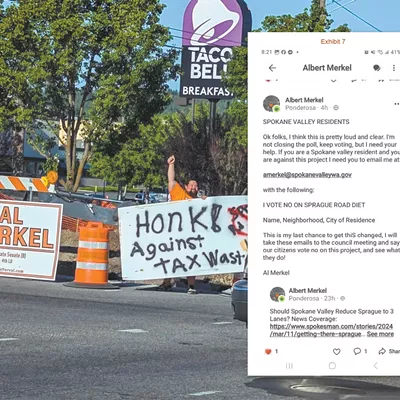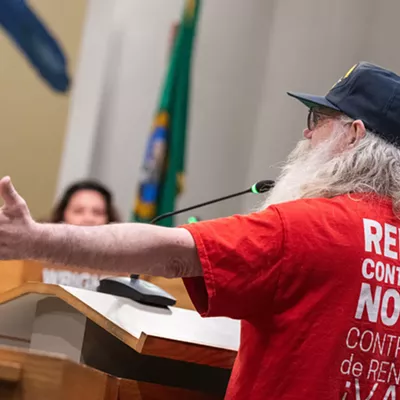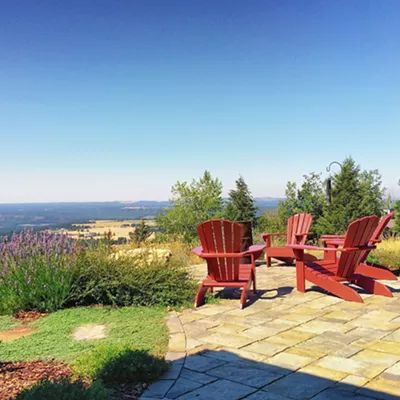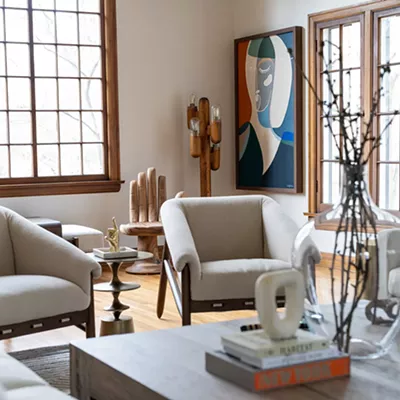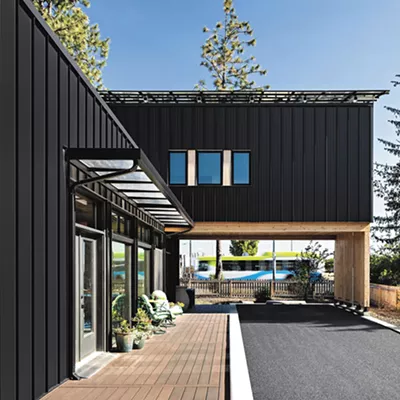A long time ago, Betsy Wilkerson thought about running for public office — but her mentor changed her mind.
"I realized that I could have as much impact not being in office as being in office," she concluded.
That mentor's name, she says when asked, was Jim West.
It was a curious pairing — West, the outed mayor of Spokane, under siege by accusations that he'd misused the power of his office to pursue young men, and a middle-aged Black woman, sitting together as buddies at a predominately Black church. West had started attending the Bethel AME church in the wake of the scandal, and even though others raised their eyebrows, seeing cynical political calculation, Wilkerson believed he was genuine.
"I think he was looking at something, and he found it at Bethel," Wilkerson says. "He was at church like we all are, trying to save our souls and do good."
Today, 14 years later, Wilkerson finally is in public office. She beat out six other finalists to be appointed to the Spokane City Council's District 2 seat that opened when Councilmember Breean Beggs became council president.
Her friendship with West foreshadowed a councilwoman who reaches across the aisle, even literally, to seek out any perspective.
CONSENSUS AND CAUTION
On the one hand, Wilkerson calls herself a "bleeding heart social worker." On the other, she stresses that she's "fiscally responsible."'
She's cautious — and that's not an accident.
While Councilwoman Kate Burke has been more than willing to vehemently object to the actions of business groups, city staffers and even her council colleagues, Wilkerson, as a Black woman, doesn't believe she has the same luxury.
"If that was me, I would be labeled," Wilkerson says. "I'd be the 'Angry Black Woman.'."
So Wilkerson emphasizes caution. In June, the council narrowly voted to pass an ordinance banning "mosquito devices" — high-pitched noisemakers intended to discourage young people from loitering around downtown businesses.
Yet Wilkerson pushed for a compromise. She said the council had discussed putting a sunset on the mosquito ban — and proposed amending the ordinance to force the council to reassess the ban at the end of 2021. And initially, a majority of the council rejected her compromise.
But after Mayor Nadine Woodward vetoed the ordinance, the power was back in Wilkerson's hands. She agreed to override the veto — but insisted that the implementation of the rule be delayed to give the businesses more time to adjust.
THE BLACK LENS
But some votes hit harder than others. A month after Spokane Police launched tear gas at both looters and peaceful protesters demonstrating against police brutality, Wilkerson had to decide whether to agree to vote for a proposed Police Guild contract that was met with unprecedented community opposition.
"NO POLICE CONTRACT Without Complete Independent Oversight" read a full-page black-and-white advertisement in the Spokesman-Review, arguing that the contract chipped away at police oversight.
The ad was signed by 21 African-American leaders, including Black Lens publisher Sandy Williams, the heads of the NAACP and Spokane Community Against Racism, and a number of Black pastors.
It was all paid for by the Carl Maxey Center, an African-American community center. Wilkerson — the first Black woman on the Spokane City Council since Roberta Greene stepped down in 2003 — serves as the president of the Carl Maxey Centery's board.
Wilkerson says she abstained on the board's vote to run the ad, but she also says she agrees with the ad's message.
Wilkerson, like every other member of council, voted against the contract. But she says she was particularly deliberate about it. "I'm really fighting my own biases," Wilkerson says. "I've had my own personal interactions with the police. Having to put that aside has been my own personal challenge."
Like a lot of Black mothers, Wilkerson says she's had "the talk" with her son, the one about how to survive encounters with law enforcement.
"I said, 'BJ, All you got to do is to live to fight another day,'" Wilkerson recalls telling her son. "You've got to get home safe, and we'll take it on, but you can't do it if you're not alive."
Wilkerson brings that experience to the council dais. But she also stresses how much she doesn't want to be tokenized or reduced to a councilwoman who only represents the Black community. She describes the precarious balancing act of both representing her own experience and representing everyone in her district.
"I feel like I'm on a trapeze wire," Wilkerson says. "My fall could be real heavy and hard."
As a councilwoman, she went on a police ride-along and got the opportunity to look through the eyes of an officer.
"My problem isn't the police. I have met some amazing men who are committed to caring for us in the community," Wilkerson says, explaining her vote. "I too support the police. ... Don't get this twisted."
But she also says that she doesn't want Black children to grow up fearing those who are supposed to protect them. "'You cannot allow the police to investigate themselves,.'" she says, quoting Carl Maxey — the Black civil rights lawyer for whom the Carl Maxey Center is named:
"We are in a nation where many Black voices are being heard, and many for the first time," Wilkerson says. "As an African American councilwoman, as a Black woman, I want to say, 'I hear you, I see you, and I feel your pain.'"


